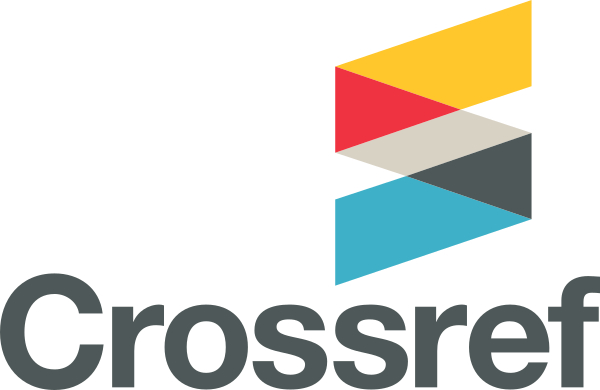JSER Policies
JSER Online
JSER Data
Frequency: quarterly
ISSN: 1409-6099 (Print)
ISSN: 1857-663X (Online)
Authors Info
- Read: 14694
|
ПРОЦЕНКА НА ЕГЗЕКУТИВНИТЕ ФУНКЦИИ ПРЕКУ ЕВОЦИРАНИ ПОТЕНЦИЈАЛИ КАЈ ДЕЦА СО ОПСЕСИВНО-КОМПУЛСИВНО РАСТРОЈСТВО
Татјана ЗОРЧЕЦ
Нада ПОП-ЈОРДАНОВА
ЈЗУ Универзитетска клиника
за детски болести, Скопје |
|
Executive FUNCTIONS evaluation through evoked potentials among children with obsessive-compulsive disorder
Tatjana ZORCEC
Nada POP-JORDANOVA
University Children’s
Hospital, |
||
|
Примено: 29.12.2010
Прифатено: 31.01.2011
UDK: 159.922.73
159.96-053.2
|
|
Recived: 29.12.2010
Accepted: 31.01.2011
Original Article |
||
|
Апстракт |
|
Abstract |
||
|
|
|
|
||
|
Вовед: Опсесивно-компулсивното растројство [ОКР] се карактеризира со повторувачки, вознемирувачки опсесии и/или компулсии. Опсесиите претставуваат наметливи и несакани мисли, слики или чувства кои предизвикуваат значајна анксиозност и нелагодност. Компулсиите се повторливи, ритуални поведенија кои се изведуваат за да се намали анксиозноста или нервозата која е предизвикана од повторувачките опсесии. Најчесто ОКР започнува во раната адолесценција или раните зрели години. Преваленцијата кај децата се движи од 1 до 3% и се чини дека е малку почеста кај момчињата отколку кај девојчињата. Најефикасен начин за третман на ОКР е комбинирањето на фармакотерапија со когнитивно-бихевиорална терапија. Во изминатите години се повеќе се зборува и истражува за улогата на егзекутивните функции [ЕФ] кај одредени психички растројства.
Цел на студијата: да се истражат ЕФ кај деца со ОКР преку ERPs на Go/NoGo задачи. Материјал и методи: во студијата беа вклучени 20 деца, од двата пола, на возраст 7−14 години [М=10,33±1,8], дијагностицирани за ОКР. Психометриската батерија на тестови беше составена од Child Behaviour Check List, Косови коцки за проценка на општите интелектуални капацитети, Beck Depression Inventory, The Schedule for Affective Disorders and Schizophrenia for School-Age Children, The Stroop Color Word Task и Wisconsin Card Sorting Test. Невропсихолошката проценка се изведуваше преку Visual Continuous Performance Test [VCPT] од кои се екстрахираат ERP компоненти.
Резултати: кај децата во нашата студија постои јасно присуство на опсесии и/или компулсии, отсуство на депресивни симптоми, присуство на персеверативни грешки и благи тешкотии во менталната флексибилност, а ERP компонентите укажуваат дека не се работи за нарушување на ЕФ во правата смисла на зборот, туку за нивно попречено нормално функционирање поради зголеменото ниво на анксиозност.
Заклучок: нема значајна клиничка манифестација на когнитивни потешкотии кај ова група на деца со ОКР во раната фаза на растројството. Но, за очекување е истите да се појават во подоцнежната фаза на растројството. |
|
Introduction: Obsessive-compulsive disorder [OCD] is characterized by repetitive, disturbing obsessions and/or compulsions. Obsessions are thoughts, images or feelings which are unwanted, persistent and recurrent. Compulsions are repetitive and ritual motor acts which are performed to decrease the anxiety level caused by repetitive obsessions. The onset of the OCD is typically during adolescence or early adulthood. Its prevalence among children is from 1% to 3% and it appears to be more present among boys than girls. Nowadays, the most effective way to treat OCD is to combine psychopharmacological with cognitive-behavioral treatment strategies. In the past decades researchers were more involved in investigating the role of the executive functions [EF] in psychiatric disorders.
Aim of the study: to investigate EF among children with OCD by using Event Related Potentials (ERPs) on the Go/NoGo tasks. Subjects and methods: The sample is comprised of 20 children from both genders, between seven and 14 years of age [М=10,33±1,83], all diagnosed with OCD. Psychological evaluation was performed with Child Behavior Check List, Kohs cubes for assessment of the intellectual capacities, Beck Depression Inventory, The Schedule for Affective Disorders and Schizophrenia for School-Age Children, Stroop Color Word Test and Wisconsin Card Sorting Test. Neuropsychological evaluation was performed with the Visual Continuous Performance Test [VCPT] from which the Event Related Potentials [ERP] components were extracted.
Results: There is a clear presence of obsessions and/or compulsions, absence of symptoms of depression, presence of perseverative errors and mild difficulties in mental flexibility. The ERP results cannot be understood as a disturbance of the EF in a direct sense, rather than as a disturbed normal functioning caused by the high anxiety level.
Conclusion: There is no significant clinical manifestation of cognitive dysfunction among children with OCD in the early stage of the disorder, but it could be expected the same one to be appearing in the later stages of the disorder. |
||
|
|
|
|
||
|
Citation:Zorcec T, Pop-Jordanova N. Executive Functions Evaluation Performed by Event Related Potentials Inchildren with Obsessive-Compulsive Disorder. J Spec Educ Rehab 2011; 12(1-2):41-55. doi: 10.2478/v10215-011-0004-8 |
||||
|
|
||||
|
Клучни зборови: опсесивно-компулсивно растројство, егзекутивни функции, деца
|
|
Keywords: obsessive-compulsive disorder, executive functions, children
|
||
|
|
|
|
||
|
|
|
|
||
|
Адреса за контакт:
Татјана ЗОРЧЕЦ
ЈЗУ Универзитетска клиника за детски болести
Водњанска 17
1000 Скопје, Македонија
Тел./Факс: (02) 3164-860
E-mail: hospital@sonet.com.mk |
|
Corresponding address:
Tatjana ZORCEC
University Children’s Hospital
Vodnjanska 17
1000 Skopje, Macedonia
Tel./Fax: (02) 3164-860
E-mail: hospital@sonet.com.mk |
||
Share Us
Journal metrics
-
 SNIP 0.059
SNIP 0.059 -
 IPP 0.07
IPP 0.07 -
 SJR 0.13
SJR 0.13 -
 h5-index 7
h5-index 7 -
 Google-based impact factor: 0.68
Google-based impact factor: 0.68
10 Most Read Articles
- PARENTAL ACCEPTANCE / REJECTION AND EMOTIONAL INTELLIGENCE AMONG ADOLESCENTS WITH AND WITHOUT DELINQUENT BEHAVIOR
- RELATIONSHIP BETWEEN LIFE BUILDING SKILLS AND SOCIAL ADJUSTMENT OF STUDENTS WITH HEARING IMPAIRMENT: IMPLICATIONS FOR COUNSELING
- EXPERIENCES FROM THE EDUCATIONAL SYSTEM – NARRATIVES OF PARENTS WITH CHILDREN WITH DISABILITIES IN CROATIA
- INOVATIONS IN THERAPY OF AUTISM
- AUTISM AND TUBEROUS SCLEROSIS
- THE DURATION AND PHASES OF QUALITATIVE RESEARCH
- REHABILITATION OF PERSONS WITH CEREBRAL PALSY
- DISORDERED ATTENTION AS NEUROPSYCHOLOGICAL COGNITIVE DISFUNCTION
- HYPERACTIVE CHILD`S DISTURBED ATTENTION AS THE MOST COMMON CAUSE FOR LIGHT FORMS OF MENTAL DEFICIENCY
- DIAGNOSTIC AND TREATMENT OPTIONS IN AUTISTIC SPECTRUM DISORDERS – AN OVERVIEW
















